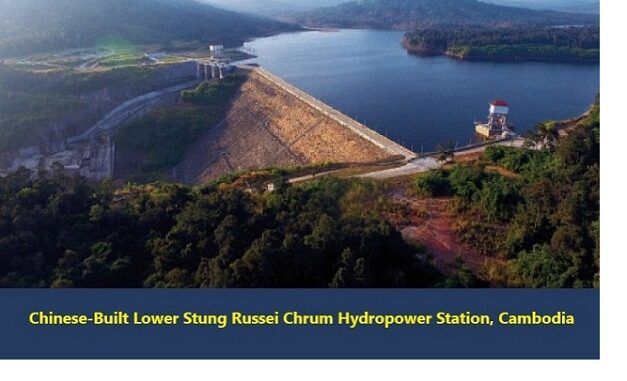
“The active participation and contributions of Chinese enterprises are crucial to Cambodia’s green and low-carbon development.”
This statement was made by Chuop Paris, Cambodia’s Secretary of State at the Ministry of Environment, on August 15 2024 at an international symposium in Beijing, themed as “Environment, Development and Human Rights: Green and Low-carbon Development in the Process of Modernization“.
Chuop Paris said that by the end of 2023, the installed capacity of operational Chinese power projects in Cambodia accounted for about 60 percent of the installed capacity of the country, reflecting Chinese enterprises’ prominent contributions to Cambodian energy transition and green low-carbon development.
With its high commitment to promoting clean, green, and sustainable development, Cambodia developed a green growth national roadmap in 2009.
This roadmap aims to enable a win–win–win situation between the environment, economy, and socioculture toward achieving environmental sustainability, stable high economic growth, and human well-being. The roadmap lays out seven key priority accesses: (i) access to clean water and sanitation, including waste management; (ii) access to sustainable energy, including renewable energy and energy efficiency; (iii) access to knowledge and information, including green education and skills; (iv) access to means for sustainable transports; (v) access to sustainable finance and investments; (vi) access to non-chemical products and food security; and (vii) access to sustainable land use, including protected areas and forest management.
The Cambodian Code for Environment and Natural Resources, approved on 29 June 2023, sets the rules to improve, harmonize, modernize, and strengthen environmental protection and conservation and to restore biodiversity, ecosystem functions, and natural resources toward sustainable living and development in Cambodia, including a major step to address climate change and green economic development.
Cambodia has been a vocal and enthusiastic proponent of the Belt and Road Initiative (BRI) since its inception in 2013. In Cambodia the BRI focuses mainly on the development of physical transport infrastructure. The BRI has also supported the development of the power sector and agricultural diversification. This has raised productivity and led to trade expansion and high economic growth without compromising debt sustainability.
Sources:
- China Daily, 16 Aug 2024. https://global.chinadaily.com.cn/…/WS66bf61a3a31003aafc…
- World, vol 5(2) May 30, 2024. ‘Cambodian Green Economy Transition: Background, Progress, and SWOT Analysis’. https://doi.org/10.3390/world5020022